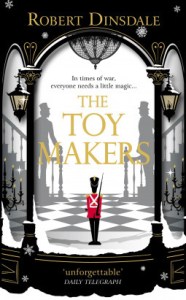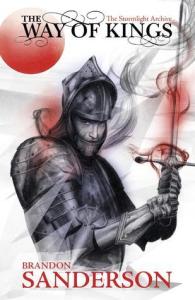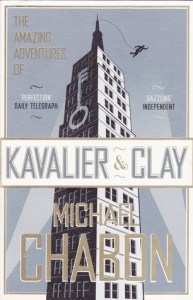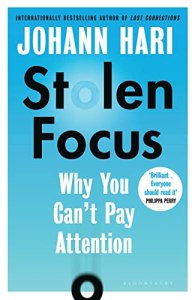Top Ten Tuesday – Books I Enjoyed That Were Out of My Comfort Zone
Today’s Top Ten Tuesday features books I enjoyed that were out of my comfort zone. I’ve been excited to share this post since I announced it coming up in my Sunday Summary. There were some clear frontrunner books I knew I wanted to feature. There are also some recent reads as well.
Hopefully you can find yourself a new read in today’s books I enjoyed that were out of my comfort zone post. Or, if nothing else, I can encourage you to try something new! I used to stick to familiar books in my teens, and I got bored. Now, I pick up all manner of genres. I try books in genres I don’t traditionally read anyway. There’s always a reason to get out of your comfort zone.
Without further preamble, here’s my list of ten books I enjoyed that were out of my comfort zone!
Books I Enjoyed That Were Out of My Comfort Zone
Me Before You

I read Me Before You because I interested in a book with a quadriplegic protagonist. Let’s face it, you’re every day main character hasn’t already gone through an event this horrific in their lifetime by the time you pick up the first page. It’s clearly a life altering event, and I wanted to see what kind of impact this accident had on Will’s life.
By no means am I a romance fan. However, this book was so well written that despite my predilection for a cold heart, I was invested in this one… so much so I was ugly crying at the end!
My Sister’s Keeper

I really enjoyed the moral dilemma of My Sister’s Keeper. Generally speaking, I don’t read a lot of pure contemporary books, but this one was worth it.
I wasn’t particularly aware of this in the storyline before I picked up the book. However, it surprised me in that I really enjoyed exploring this element of the narrative as it was engaging and made me really think about each of the characters, their needs and rights.
A Witch’s Guide to Magical Innkeeping

A Witch’s Guide to Magical Innkeeping is a very recent read, but very applicable to this ‘books I enjoyed that were out of my comfort zone’ list. It’s a contemporary and reasonably light fantasy read. I generally prefer heftier, epic tomes when it comes to fantasy. However, if there is one thing I have come to appreciate whilst moderating the cottage core fantasy book club, it’s that lighter fantasy books have their place on my reading list.
This book also flirts with a light romance I saw coming a mile away. Generally speaking, it’s not something I look for in my books however it’s an element of this story that I didn’t hate.
Gran Familia

I’m not a big manga reader, although I do have a small selection on my reading list to pick up. I can only hope that my experience of the likes of Gran Familia (and the other books I pick up and coming years), inspire me to pick up more of this genre.
I really enjoyed the fast-paced story. As a fan of mixed media for MacBooks, it isn’t a stretch of the imagination to understand why I enjoyed this manga. And, I definitely want to read more – not just of this serial, but in the genre more widely!
A Promised Land

As a general rule, I stay away from politics. That not just in my reading life, but more widely. I don’t have the energy for it, and the power struggles and spats between alleged adults have my questioning why some people are in power.
An exception to this rule is Barack Obama. I actually had a lot of respect for him as a person and what he stood for. It’s the only reason I picked up A Promised Land. The material was a little heavy, but I’m glad I read it.
A Brief History of Time

A Brief History of Time surprised me in that I expected the book to be technical. When you think of Stephen Hawking, you think of complex theories like black holes and quantum physics.
However, it wasn’t unapproachable. Was it the easiest read going? Obviously not. However, I didn’t struggle with it like I anticipated.
The House in the Cerulean Sea

The slower, more cozy vibe of The House in the Cerulean Sea isn’t my usual read. However, it was fun and I invested in the characters.
It’s inspired me to pick up more books by T. J. Klune. That’s the level of impression it made! This book has a sequel, Somewhere Beyond the Sea. However, I also plan to try the likes of In The Lives of Puppets.
As Long As the Lemon Trees Grow

As Long As the Lemon Trees Grow is a very interesting novel. It has a shocking twist you wouldn’t expect from this genre of book. The author portrays an inspiring passion for the country of Syria through protagonist Salama.
This isn’t what I expected, but I loved this book. It’s a book I’d love to read again and it made my favourite debut novels post.
The Toymakers

This book is magical and inspiring. I love historical fiction and the magical realism of this book is perfect. If I read a fantasy/magical book, it’s generally not realism. It’s a tough balance to get the realism and magic right. The Toymakers got this so right!
Also, I don’t often read Christmas themed books but this one was fun.
A Clockwork Orange

The last book on this books I enjoyed that were out of my comfort zone post is A Clockwork Orange.
A Clockwork Orange is an unusual book in that a lot of the language is substituted. It doesn’t read like a normal book and when you first start, it doesn’t make sense.
However, the substitutions are consistent and over time, context fills in the gaps so you can work out the language.
It’s not something I’ve really come across in a book before. However, considering the slang kids come out with nowadays I could do with brushing up on my skills…
Summary
I hope you’ve enjoyed today’s Top Ten Tuesday post exploring books I enjoyed that were out of my comfort zone. There’s quite the range of books on today’s Top Ten Tuesday, but that’s pretty reflective of my reading tastes in general.
Can you share any books you enjoyed that were out of your comfort zone?



































 Genre: Non-fiction
Genre: Non-fiction










 Top 1% in Epic
Top 1% in Epic